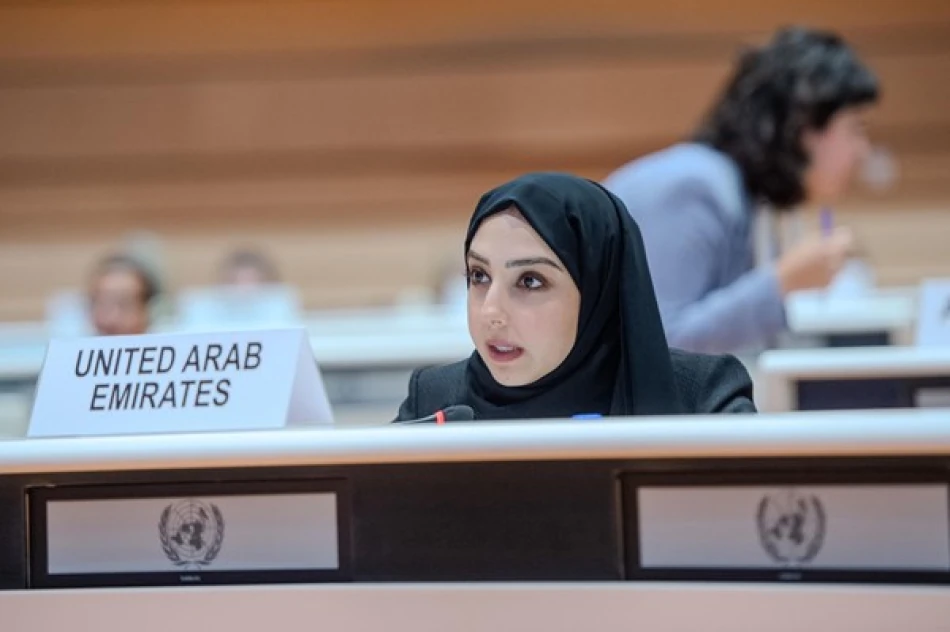
UAE Pledges Unwavering Support for Global Education Access
UAE Champions Global Education Rights in Push for New UN Child Protection Protocol
The United Arab Emirates has positioned itself as a leading advocate for universal education access, announcing significant commitments at a crucial UN meeting exploring new international protections for children's educational rights. Speaking at a Geneva summit on potential amendments to the Convention on the Rights of the Child, UAE officials outlined the nation's comprehensive domestic education policies while pledging continued international support for education in crisis-affected regions.
UAE's Domestic Education Model Sets Regional Standard
Hagar Ahmed Al Dhahli, Secretary-General of the Council for Education, Human Development and Society, detailed the UAE's expansive education framework during the September 1-3 meeting at the UN's European headquarters. The country provides free, compulsory education through secondary school for all citizens, extending to free higher education—a policy that distinguishes it from many regional neighbors.
The UAE's approach extends beyond its citizen population, offering equitable educational opportunities to residents of all nationalities while maintaining specialized programs for students with disabilities. Crucially, the government has implemented targeted support systems ensuring children from low-income families can access quality education, addressing one of the most persistent barriers to educational equity globally.
International Context and Comparisons
This comprehensive education model places the UAE ahead of many developed nations in terms of accessibility. While countries like the United States grapple with student debt crises and uneven educational funding, the UAE's commitment to free higher education for citizens mirrors successful models in Nordic countries, though with broader inclusivity for non-citizen residents.
Strategic International Education Investment
Beyond domestic policies, the UAE has emerged as a significant player in global education financing. The country's $100 million commitment announced at the July 2021 Global Partnership for Education donor conference represents a substantial investment in developing nation educational infrastructure, particularly in crisis-affected regions.
This funding strategy aligns with broader Gulf state efforts to establish soft power influence through humanitarian aid, but the UAE's focus on education specifically targets long-term development outcomes rather than immediate relief efforts.
Geopolitical Implications
The timing of these announcements carries particular significance as global education systems recover from pandemic disruptions. The UAE's proactive stance at the UN working group meeting, chaired by Deputy High Commissioner for Human Rights Nada Al-Nashif, positions the country as a bridge between developed and developing nations on education policy.
Looking Toward Sustainable Development Goals
Al Dhahli's emphasis on achieving Sustainable Development Goal 4—ensuring inclusive and equitable quality education for all—reflects the UAE's broader strategy of aligning domestic success with international leadership. The country's comprehensive approach, covering early childhood through higher education, provides a template that other nations, particularly in the Middle East and North Africa region, may seek to emulate.
The proposed optional protocol to the Convention on the Rights of the Child could establish new international standards for educational access, with the UAE's existing policies potentially serving as benchmarks for implementation. This positions the country advantageously as global education frameworks evolve in response to changing economic and social conditions worldwide.
Most Viewed News

 Layla Al Mansoori
Layla Al Mansoori






